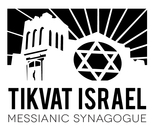DEFINING MESSIANIC JUDAISM |
DEFINIENDO EL JUDAÍSMO MESIÁNICO |
|
BASIC STATEMENT The Union of Messianic Jewish Congregations (UMJC) envisions Messianic Judaism as a movement of Jewish congregations and groups committed to Yeshua the Messiah that embrace the covenantal responsibility of Jewish life and identity rooted in Torah, expressed in tradition, and renewed and applied in the context of the New Covenant. Messianic Jewish groups may also include those from non-Jewish backgrounds who have a confirmed call to participate fully in the life and destiny of the Jewish people. We are committed to embodying this definition in our constituent congregations and in our shared institutions. EXPANDED STATEMENT Jewish life is life in a concrete, historical community. Thus, Messianic Jewish groups must be fully part of the Jewish people, sharing its history and its covenantal responsibility as a people chosen by God. At the same time, faith in Yeshua also has a crucial communal dimension. This faith unites the Messianic Jewish community and the Christian Church, which is the assembly of the faithful from the nations who are joined to Israel through the Messiah. Together the Messianic Jewish community and the Christian Church constitute the ekklesia, the one Body of Messiah, a community of Jews and Gentiles who in their ongoing distinction and mutual blessing anticipate the shalom of the world to come. For a Messianic Jewish group 1) to fulfill the covenantal responsibility incumbent upon all Jews, 2) to bear witness to Yeshua within the people of Israel, and 3) to serve as an authentic and effective representative of the Jewish people within the body of Messiah, it must place a priority on integration with the wider Jewish world, while sustaining a vital corporate relationship with the Christian Church. In the Messianic Jewish way of life, we seek to fulfill Israel’s covenantal responsibility embodied in the Torah within a New Covenant context. Messianic Jewish halakhah is rooted in Scripture (Tanakh and the New Covenant writings), which is of unique sanctity and authority. It also draws upon Jewish tradition, especially those practices and concepts that have won near-universal acceptance by devout Jews through the centuries. Furthermore, as is common within Judaism, Messianic Judaism recognizes that halakhah is and must be dynamic, involving the application of the Torah to a wide variety of changing situations and circumstances. Messianic Judaism embraces the fullness of New Covenant realities available through Yeshua, and seeks to express them in forms drawn from Jewish experience and accessible to Jewish people. |
DECLARACIÓN BÁSICA La Union of Messianic Jewish Congregations (Unión de Congregaciones Judías Mesiánicas) (UMJC) concibe el Judaísmo Mesiánico como un movimiento de grupos y congregaciones judíos comprometidos con el Mesías Yeshua que abrazan la responsabilidad arraigada en la Torá y manifestada en tradición, de mantener el pacto divino dentro de la vida e identidad judía, renovada y aplicada en el contexto del Nuevo Pacto. Los grupos judíos mesiánicos pueden incluir a quienes provengan de un contexto no judío, teniendo un indudable llamado de participar completamente en la vida y el destino del pueblo judío. Estamos comprometidos en incorporar este concepto en nuestras congregaciones constituidas e instituciones comunes. DECLARACIÓN AMPLIADA La vida judía se desarrolla dentro de una comunidad específica e histórica. Por lo tanto, los grupos judíos mesiánicos deben formar parte integral del pueblo judío, compartiendo su historia y su responsabilidad de mantener el pacto divino como pueblo escogido por Dios. Al mismo tiempo, la fe en Yeshua también tiene una dimensión comunitaria fundamental. Esta fe une a la comunidad judía mesiánica con la iglesia cristiana, la cual consiste en el conglomerado de fieles entre las naciones quienes se han unido a Israel a través del Mesías. Juntas, la comunidad judía mesiánica y la Iglesia Cristiana constituyen la ekklesia, el cuerpo del Mesías, una comunidad de judíos y gentiles, quienes anticipan el shalom del mundo venidero en sus diferencias distintivas y bendiciones mutuas. Un grupo judío mesiánico debe 1) cumplir con la responsabilidad del convenio legado al pueblo judío 2) dar testimonio de Yeshua dentro del pueblo de Israel y 3) servir como un representante activo y eficaz del pueblo judío dentro del cuerpo del Mesías. Por lo tanto, para cumplir con estas premisas, debe ser prioritaria la integración dentro del amplio espectro del mundo judío, y al mismo tiempo fomentar una relación colectiva y vital con la iglesia cristiana. En nuestro estilo de vida como judíos mesiánicos, procuramos cumplir con el pacto y responsabilidad divina de Israel, incorporado en la Torá, dentro del contexto del Nuevo Pacto. La halajá judía mesiánica está arraigada en Las Escrituras (Tanaj y Brit HaJadasha), como únicas depositarias de autoridad y santidad. También se nutre de la tradición judía, especialmente aquellas costumbres y conceptos que han ganado aceptación de cuasi universal por parte de los judíos practicantes a través de los siglos. Además, tal como es común en el judaísmo, el judaísmo mesiánico reconoce que halajá es y debe ser dinámica en relación a la aplicación de la Torá a una amplia variedad de situaciones y circunstancias en constante cambio. El Judaísmo Mesiánico abraza la plenitud de las realidades del Nuevo Pacto disponibles a través de Yeshua, y busca expresarlas en formas inspiradas en la experiencia Judía y accesible al pueblo Judío. |
Ratified by the UMJC Theology committee, translated by Rabbi David Wein and Congregacion Bet El Shadai (Venezuela)




